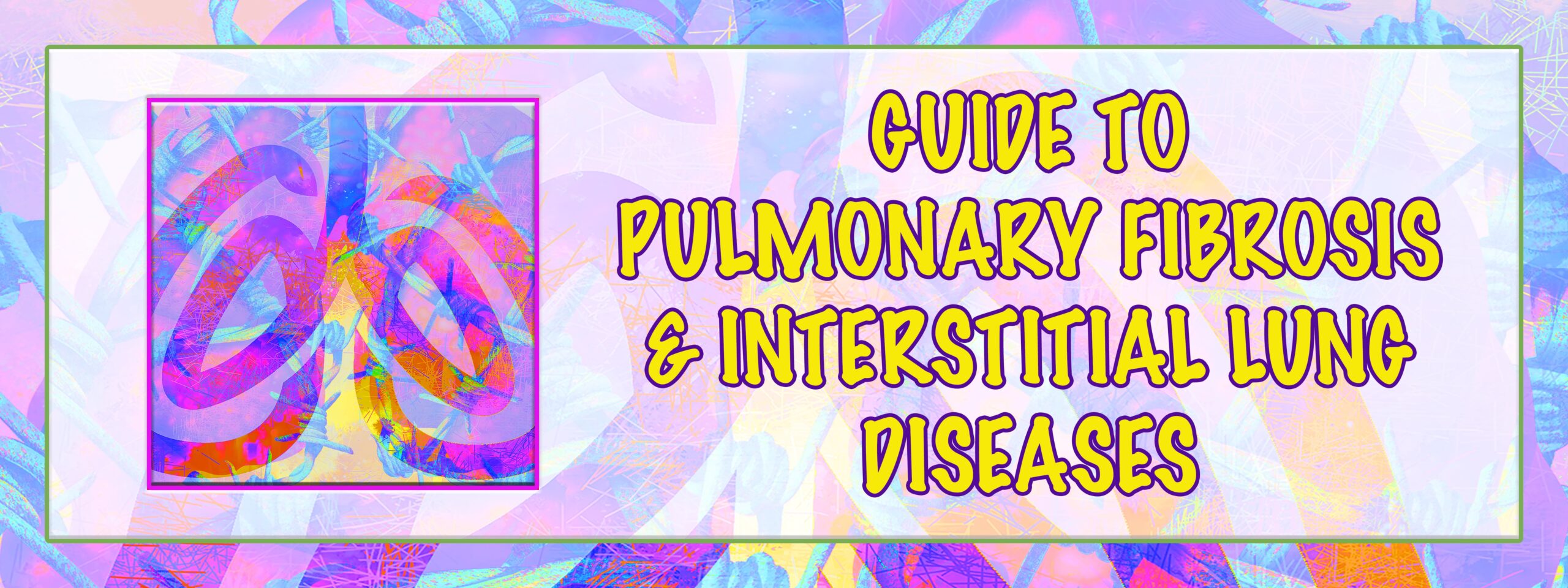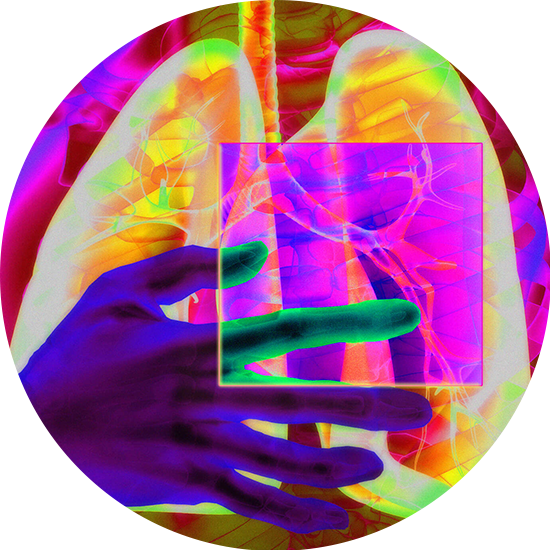
Final Thoughts & Motivations by Noah Greenspan, PT, DPT, CCS, EMT-B
“Whether you think you can or think you can’t—you’re right.” – Henry Ford
I often encounter people during some of the worst times of their lives. Perhaps they have been newly diagnosed or maybe they are experiencing an exacerbation or progression of their existing disease or some other setback in their lives. This can be difficult to cope with from both a physical and emotional perspective. After all, not being able to breathe can be incredibly stressful, anxiety provoking, and depressing.
Life with a chronic illness can (and will) have its ups and downs. But guess what. So can life without a chronic illness. Ups and downs are a natural part of being human. Regardless of who you are, some days will shine brighter than others and other days, things will get dark. Sometimes, everything in your life will seem perfect and sometimes, well, quite simply, they will suck. The key is not to get stuck in “Suckville.”
“When we are no longer able to change a situation, we are challenged to change ourselves.” – Victor Frankl
Please don’t think that I am minimizing your situation. I am not. I also understand that what I am saying is easier said than done and sometimes, no matter what you do, it can be hard to dig yourself out of that hole. That’s when it’s time to ask for help, whether it be from your doctor or other health care professional, friends or family members, clergyman or clergywoman, dog, cat, bird; or whomever or whatever it may be that helps pick you up when you’re down.
My work is often challenging in so many ways, which is one of the things I love about it. I often get to go back and forth between a physiology-based, science-intensive role, to a pop-psychology feel-good pick-me-upper, to a locker room halftime speech all in the same day. In the end, I decided to incorporate a little of each here, with the purpose of motivating you, giving you some helpful tips and sending you back out on the field, feeling ready to kick some butt.
I have also decided to share some of my favorite quotes with you; particularly those in which, I, myself find comfort or motivation or that otherwise inspire me when I am being faced with my own personal challenges, of which there have been many. Hopefully, you will find them helpful as well. If not, feel free to cross mine out and write in your own.
“The only constant in life is change.” – Greek Philosopher, Heraclitus of Ephesus
The Greek philosopher, Heraclitus of Ephesus, lived from 535 BC-475 BC and is best known for his doctrine on change being central to the universe. This goes hand in hand with “this too, shall pass,” attributed to either Persian Sufi poets or King Solomon of the bible depending on your source.
“This, too, shall pass.” – Persian Sufi Poets or King Solomon
These quotes remind us that change is inevitable and that we should not find it surprising when things in our lives shift, be it for better or for worse. In fact, we should be more surprised when things stay the same. Another piece of advice to be gleaned from those messages is to try to embrace the change, roll with the punches, soak in life’s beautiful moments and push through the challenges because nothing lasts forever; again, for better or for worse.
What Can We Do?
According to British philosopher, Alan Watts, “By replacing fear of the unknown with curiosity, we open ourselves up to an infinite stream of possibility. We can let fear rule our lives, or we can become childlike with curiosity, pushing our boundaries, leaping out of our comfort zones, and accepting what life puts before us.” For our purposes, I take this quote to mean that we can’t alleviate stress-related symptoms unless we address their underlying cause. Here are some ideas of ways to make your life easier, happier a.
Get Educated!
Fear of the unknown can very often worsen or intensify whatever situation you are dealing with. When it comes to finding out about your medical condition, everybody is different and has different levels of “wanting to know.” For me, personally, it is almost always better to find out as much information as I can, and what I can do to deal with the problem head-on.
This can be especially important for people living with a chronic illness. By learning as much as you can about your disease, its associated symptom, and available treatments, you will be in a better position to make decisions regarding your care and your life. In addition, this understanding can help you gain a greater sense of control, reduce your day-to-day stress, and contribute to your overall sense of well-being.
“Knowledge is the antidote to fear.” – Ralph Waldo Emerson
In an ideal world, your doctor or his staff would have all the time in the world to sit down with you and explain your diagnosis, test results, and treatment options. However, while many medical professionals make patient education a regular part of their practice, we know that others simply don’t have the time to do this for each patient.
Thankfully, there are many other resources that can help you find the information you need. As I have mentioned from the start, there is a lot of information on the Internet. To be sure that the material you are finding is both relevant and accurate, I would suggest starting with some of the official disease-related foundations and associations. Of course, we are biased toward our own Pulmonary Wellness Foundation but we also like the American Lung Association and their Better Breathers Clubs, the Pulmonary Fibrosis Foundation, and the Pulmonary Hypertension Association, among others.
I would also like to invite you to view my Ultimate Pulmonary Wellness Webinars. During these 1-2-hour-plus webinars, I discuss key components of optimal disease management as well as having the honor of having many of the tippy-top specialists in their respective fields as my guests.
The Ultimate Pulmonary Wellness Webinar Series can be found online at:
www.PulmonaryWellness.com/Webinars
Get Support!
Humans are, by nature, social creatures and we know that social support plays a huge role in shaping our emotional health and enhancing our quality of life. Chronic harmful emotions like stress, anxiety and depression can feel exponentially more oppressive when we are dealing with them in isolation. We all have busy lives but spending time with loved ones can significantly improve your emotional state, mental health, and physical well-being.
While the support of family and friends is extremely important, this can sometimes present its own challenges. As an example, you may not feel comfortable sharing certain aspects of your disease with them. You may feel like they will not be able to understand your situation, or you may not want to burden them with your concerns.
This is where a support group can be a tremendous help. By belonging to a group in which, people have the same or similar condition, you will come to realize that you are not alone. You will have the opportunity to interact with people who are going through similar struggles, and who knows? You may even be able to serve as a resource to someone else in need. Whether in-person, by telephone, or online, support groups can help you learn from the experience of others and share your own in return.
The UPW Facebook Group can be found online at:
www.facebook.com/groups/UltimatePulmonaryWellness
Think Positive!
Optimism and/or pessimism can have a major impact on your physical, mental, and emotional health. I realize that maintaining a positive attitude is sometimes easier said than done, but people who have a positive attitude often have a greater ability to deal with stress. Taking steps to reframe your attitude and negative self-talk will prepare you to cope more effectively with stressful situations and to fight off anxiety and depression.
Take steps to surround yourself with positive influences. If you’re constantly being assaulted by cynical people, negativity, or rude comments; or depressing or anxiety-provoking TV shows or other media outlets, you will have a much harder time breaking the cycle of negativity.
“The most important decision is to be in a good mood.” – Voltaire
LOL!
There’s a reason why we often call laughter the best medicine. Laughter can lower our stress level, decrease anxiety, and reduce depression. Laughing can relieve both physical and emotional tension in our bodies, reducing the level of stress hormones in the blood and stimulating the release of endorphins, relieving pain, and promoting healthy immune function.
Finding a way to laugh productively in stressful or depressing circumstances may seem challenging at first, but, like anything, it gets easier with practice. Make humor an intentional part of your life. In the end, the method doesn’t matter as much as trying to lighten the mood, whenever possible.
“We need more kindness, more compassion, more joy, and more laughter. I definitely want to contribute to that.” – Ellen DeGeneres
Making the Change
Living with a chronic respiratory disease is not easy and can trigger negative emotions such as stress, anxiety, and depression, both in the moment and over the long-term. One of the ironies is that when we’re feeling stressed, anxious, depressed, or angry, we often engage in the exact opposite behaviors that we should. We decrease our participation in healthy activities like exercise and increase our participation in unhealthy behaviors like eating poorly or using tobacco.
Again, please understand that I am not minimizing your feelings or saying that it will be easy. I recognize and appreciate the gigantic emotional toll that living with a chronic illness can have on a person’s life, especially one in which shortness of breath is a primary symptom. The good news is that you do have the power to change and there are things that you can do to minimize your symptoms and improve your life.
“You’re braver than you believe and stronger than you seem, and smarter than you think.” – Christopher Robin
As far as any of us knows, we only get one life to live and I’m going to fight for it. I may go down, but if I’m going down, you’d better believe I’m going down fighting tooth and nail and for every breath. In the case of Ultimate Pulmonary Wellness, this means gathering up your army, and using every weapon and tool you have at your disposal. Your army includes your family, friends, doctors, and other healthcare professionals, among others. Your tools and weapons are your medications, exercising, eating well, managing your stress and anxiety, and taking steps to prevent infection.
For today, try not to focus on what you don’t have or what you can’t do. Focus on the things that you can do and do them well. If you can help someone else in the process, that’s all the better. Answer someone’s question, share your experience, express a few words of encouragement to someone that is struggling…and breathe. You are alive! Make sure you don’t forget to live. I am with you. Make it a great one, my friends.
“Never, never, never, never give up!” – Winston Churchill
“Imperfection is beauty, madness is genius and it’s better to be absolutely ridiculous than absolutely boring.” – Marilyn Monroe
-INDEX-
A
Abdominal · 69, 73, 80, 90, 120, 142, 183, 202, 211, 212, 225, 233, 234, 289, 292
Acapella Duet · 296
ACBT · 285, 287, 290, 294, 297, 299
Accessory Muscles · 63, 71, 138, 188, 286
ACR · 318
Actemra · 153
Active Cycle of Breathing · 285
Acute Cellular Rejection · 318
Advance Planning · 4, 322
Aerobic Capacity · 84
Age-Predicted Exercise Capacity · 195, 197
Air Hunger · 11
Air Quality Index · 277
Airway Clearance · 4, 282, 292, 303
Alcohol · 207, 226, 229, 230, 234, 317
Alveolar · 40, 41, 213
Alveolar Spaces · 40
Alveolar Wall · 40, 41
Alveoli · 40, 41, 64, 96, 136
American Lung Association · 69, 343
Amiodarone · 47
Anatomy · 40, 135, 209
Anorexia · 74
Antibacterial · 268, 269
Anti-Fibrosis · 27
Anti-Fibrotic · 151, 152
Anti-Synthetase Syndrome · 47
AQI · 277
Asthma · 20, 43, 301
Atrial Fibrillation · 47
Autoimmune · 27
Autoimmune and Connective Tissue Disorders · 45, 47
Azathioprine · 151
B
Ballistic · 189
Bensen Treadmill Protocol · 203
Bleomycin · 47
Bpm · 166, 167
Breathing Techniques · 4, 66, 69, 70, 80
Breathlessness · 171, 172, 174
Bronchi · 136, 293
C
Caffeine · 230
Carbon Dioxide · 40, 62, 64, 117, 123, 137, 213
Cardiac · 41, 42, 43, 47, 167, 168, 193, 200, 230, 234, 242
Cardiopulmonary · 13, 35, 36, 68, 124, 126, 134, 148, 156, 164, 167, 169, 192, 229
Cardiovascular · 12, 33, 65, 82, 118, 136, 160, 164, 166, 167, 168, 178, 199, 200, 205, 207, 216, 218, 273, 274, 291, 348
Cellcept · 151
Chemotherapy · 47
Chronic Bronchitis · 20, 23
Chronic Cough · 8
CO2 · 62, 64, 123, 137, 213, 214
COE · 18, 30, 44, 150, 153
Cognitive · 57, 252, 315
Congestive Heart Failure · 231
Controlled Breathing Techniques · 69, 71, 77, 80, 81, 83, 85, 87, 89, 92, 93, 120, 141, 202
COPD · 43, 63, 64, 123, 222
Coronary Insufficiency · 121, 123
Corticosteroids · 151
Cyclophosphamide · 152
Cytoxan · 152
D
Dairy and Bone Health · 221
Depression · 53, 54, 147, 209, 241, 246, 249, 253, 256, 257, 258, 264, 337, 344, 345, 346
Depression · 147, 246, 253
Dermatomyositis · 47
Diaphragm · 62, 73, 74, 79, 80, 84, 90, 91, 92, 138, 181, 183, 185, 188, 189, 211, 212, 293
Diaphragmatic · 69, 73, 87
Diaphragmatic Breathing · 69
Digestive System · 206
Disease · 3, 8, 9, 11, 12, 15, 16, 17, 19, 27, 30, 31, 33, 35, 39, 40, 41, 42, 43, 44, 45, 46, 48, 51, 56, 60, 63, 64, 65, 75, 78, 84, 85, 88, 96, 116, 143, 144, 147, 150, 157, 162, 168, 173, 175, 178, 184, 185, 188, 205, 206, 207, 208, 211, 213, 215, 216, 218, 219, 220, 223, 224, 227, 229, 232, 233, 234, 238, 239, 241, 243, 244, 247, 248, 260, 261, 265, 266, 267, 268, 271, 272, 273, 275, 277, 278, 281, 282, 284, 305, 308, 309, 310, 311, 313, 314, 334, 337, 340, 342, 343, 344, 346, 348
DME · 98, 104, 106, 107, 108, 110
Drugs · 45, 150
E
ECG · 36, 167
EKG · 167, 173, 317, 319
Emotional Health · 4, 238
Emphysema · 40, 212
Environmental Protection Agency · 277
Enzymes · 209, 210, 218
Epiglottis · 136, 209
Esbriet · 24, 152, 322
Esophagus · 209, 210, 234
Exercise · 4, 137, 146, 147, 154, 155, 158, 162, 165, 168, 170, 174, 193, 195, 197, 203, 225
Exhalation · 62, 63, 64, 71, 75, 84, 89, 92, 137, 142, 286, 291, 295, 299, 301, 302
F
FAA · 112, 113
Fiber · 216, 217, 233
Fibrosis · 5, 17, 25, 26, 30, 46, 49, 50, 96, 117, 151, 152, 238, 308, 309, 310, 311
Flexibility · 15, 175, 176, 180, 188, 189, 190
G
Gastro-Esophageal Reflux Disease · 233
Gastrointestinal system · 61
H
Heart Attack · 65, 77, 216, 218
Heart Failure · 121, 123, 229, 231
HFCWO · 302, 303, 304
Hypersensitivity Pneumonitis · 25, 45, 46
I
Idiopathic Pulmonary Fibrosis · 17, 38
ILD · 1, 8, 9, 10, 17, 18, 24, 25, 27, 30, 38, 39, 40, 41, 43, 44, 45, 47, 63, 84, 96, 103, 117, 145, 150, 152, 153, 225, 238, 245, 246, 250, 256, 265, 323, 334, 337
Immune system · 151, 152, 232, 266, 267, 272, 273, 274, 309, 318
Immunosuppressant · 151, 318
Imuran · 151
Inflammation · 42, 46, 64, 92, 96, 151, 209, 219, 220, 221, 232, 275, 279
Inhaler · 82, 85, 93, 120, 203, 237, 278
Interstitial · 8, 9, 27, 30, 40, 41, 42, 43, 44, 45, 47, 48, 238, 322
Interstitial Lung Diseases · 1, 2, 4, 38, 348
Interstitial Pneumonia · 30
IPF · 5, 9, 10, 17, 18, 19, 20, 21, 22, 23, 24, 27, 28, 29, 30, 38, 42, 43, 47, 48, 49, 55, 145, 152, 153, 239, 308, 309, 310, 315, 320, 322, 326, 332, 334, 335, 336, 337, 338
Isometric · 187, 189
L
Larynx · 135, 136, 209
Lung · 1, 2, 4, 5, 8, 9, 17, 18, 19, 20, 22, 24, 25, 27, 29, 30, 40, 41, 42, 43, 44, 45, 46, 47, 48, 63, 64, 65, 67, 75, 84, 88, 95, 96, 136, 148, 155, 162, 177, 212, 213, 238, 239, 243, 247, 248, 265, 275, 289, 308, 309, 310, 311, 312, 313, 315, 316, 317, 318, 319, 320, 322, 334
Lung Transplantation · 4, 308, 311
Lupus · 47
M
Manifesto · 132
Medical · 5, 12, 17, 18, 21, 22, 23, 27, 35, 39, 45, 49, 51, 52, 61, 79, 98, 99, 104, 105, 107, 111, 113, 119, 124, 125, 128, 145, 146, 150, 153, 166, 167, 168, 174, 198, 205, 208, 216, 234, 236, 264, 273, 281, 308, 312, 313, 314, 315, 316, 317, 319, 325, 326, 336, 338, 342, 343
Medicare · 105, 118, 129
Medications · 4, 45, 47, 150, 310
Metabolic Equivalents · 85
Metabolism · 62, 85, 208, 213, 214, 226
Metabolism · 84, 214
METs · 86, 168, 169, 194, 196, 201
Mucous · 282, 283
Mucus Production · 210, 222
Muscular Systems · 65, 136
Musculoskeletal · 160, 164, 180, 182, 190, 197, 289, 290, 291
Mycophenolate Mofetil · 151
Mycophenolic Acid · 151
Myfortic · 151
Myocardial Infarction · 65
N
Nasal Cannula · 102, 103, 132
Neurologic System · 190
Non-Rebreather Mask · 5, 103, 131
Non-Specific Interstitial Pneumonia · 47
Nu-Step · 184, 187
Nutrition · 4, 35, 144, 146, 147, 205, 206, 207, 209, 211, 228, 237, 246, 257, 348
O
Obesity · 74, 205, 207, 216, 218, 219, 234
Obstructive Lung Diseases · 40, 63, 64
Ofev · 152, 322
Osteoporosis · 216, 220, 221, 235, 289
Overweight · 60, 183, 207, 223, 224, 225, 227, 309
Oxygen · 4, 84, 99, 100, 101, 102, 105, 106, 108, 114, 116, 117, 118, 124, 128, 131, 132, 134, 174
Oxygen Manifesto · 4, 101, 116, 124, 132, 134
Oxygen Saturation · 25, 36, 42, 85, 88, 96, 97, 118, 119, 121, 122, 128, 165, 167, 172, 173, 174, 201, 202, 249, 315
Oxygen Tubing · 102
Oxygenated · 62, 121
P
Pathophysiology · 60, 138, 348
PEP · 284, 290, 293, 294, 296, 297, 298, 300, 303, 304
Perceived Dyspnea · 171, 172, 174
Perceived Exertion · 170, 174
pH imbalance · 123
Pharynx · 135, 209
Phrenic Nerve · 62, 84
P-huh · 305, 306
Physical Therapy · 13, 134, 156, 348
Physiology · 40, 41, 42, 60, 135, 138, 166, 176, 284, 341, 348
Pneumonia · 45, 47, 273
POC · 99, 100, 101, 104, 107, 108, 109, 110, 111, 112, 113, 114, 116, 126, 128, 129, 132, 133
Polymyositis · 47
Portable Oxygen Concentrators · 99, 100
Postural Drainage · 285, 290, 292
Prednisone · 27, 151
Prevention of Infection · 4, 146, 147, 266
Probiotics · 221, 281
PTSD · 264
Pulmonary · 1, 2, 3, 4, 5, 8, 13, 14, 15, 16, 17, 18, 21, 24, 25, 29, 30, 33, 38, 40, 41, 42, 44, 45, 47, 49, 50, 67, 70, 78, 79, 82, 88, 101, 104, 114, 115, 116, 117, 118, 119, 120, 121, 122, 123, 131, 134, 137, 143, 144, 146, 147, 148, 151, 153, 157, 160, 161, 163, 166, 167, 168, 173, 175, 176, 178, 179, 185, 186, 187, 188, 189, 194, 198, 205, 206, 207, 215, 216, 218, 223, 224, 225, 227, 230, 231, 234, 238, 242, 247, 260, 266, 268, 272, 274, 283, 292, 305, 308, 309, 310, 311, 314, 319, 348
Pulmonary Fibrosis · 1, 2, 17, 30, 38, 43, 47, 48, 63, 145, 240, 308, 330, 331, 334, 343, 348
Pulmonary Hypertension · 121, 123, 173
Pulmonary Toxicity · 47
Pulmonary Wellness · 1, 2, 3, 4, 5, 14, 16, 24, 35, 38, 86, 115, 137, 141, 143, 144, 146, 154, 163, 195, 198, 203, 209, 256, 269, 281, 343, 344, 347, 348
Pulmonary Wellness & Rehabilitation Center · 154, 195, 198, 203, 269, 348
Q
Quake · 301, 302
R
Recoil · 63, 64
Red Blood Cell · 40, 42
Rehabilitation · 8, 13, 17, 35, 36, 70, 79, 114, 120, 122, 134, 137, 143, 156, 167, 168, 194, 319
Respiratory · 3, 11, 12, 14, 20, 21, 22, 23, 35, 43, 60, 61, 62, 63, 64, 65, 67, 68, 73, 74, 82, 83, 85, 89, 91, 92, 116, 118, 120, 131, 136, 137, 139, 140, 141, 142, 144, 147, 148, 150, 155, 160, 171, 178, 182, 184, 185, 186, 188, 189, 192, 205, 206, 207, 208, 209, 211, 213, 214, 220, 224, 225, 227, 229, 230, 232, 233, 234, 245, 266, 267, 273, 275, 277, 278, 281, 282, 307, 346, 348
Respiratory System · 4, 60, 62
Respiratory Tract · 209, 227, 282
Restrictive Lung Diseases · 63, 75, 84
Rheumatoid Arthritis · 47, 151
Rituxan · 153
Rituximab · 153
RPE · 170, 171, 174
S
Scleroderma · 152, 153
Scleroderma · 47
Short-Acting Bronchodilator · 88, 203
Shortness of Breath · 4, 32, 69, 76, 119, 160
Sinus · 103, 283
Sjogren’s Syndrome · 47
Supplemental Oxygen · 4, 95
Support Groups · 19, 24, 54, 104, 256, 344
T
Tachycardia · 167, 230
Thoracic · 62, 84, 90, 183, 189, 193, 211, 212, 233, 289, 292, 308
Thorax · 90, 142, 181, 182, 188, 192, 211, 212, 225, 315
Tocilizumab · 153
Trachea · 136, 140, 141, 209
Treadmill · 4, 15, 169, 170, 179, 181, 187, 192, 193, 194, 196, 197, 198, 199, 200, 201, 202, 203, 204
U
Ultimate Pulmonary Wellness · 14, 115, 119, 137
Upper Body Ergometer · 15, 179, 184
Upper Extremities · 79, 91, 139, 192
V
Vaccine · 273, 274
W
Walking · 13, 14, 18, 29, 34, 57, 66, 67, 77, 81, 82, 86, 87, 88, 89, 90, 97, 112, 176, 179, 180, 181, 183, 192, 196, 197, 199, 200, 201, 244, 269, 309
Well-Being · 4, 238
Wellness · 14, 115, 119, 137, 145, 156, 161, 178, 187, 188, 190, 191, 203, 348
Book Description
The Pulmonary Wellness Guide for Pulmonary Fibrosis and Interstitial Lung Diseases is a resource for all people living with respiratory disease including patients, their families and caretakers, and clinicians. This well-rounded guidebook was written FOR patients, caregivers, and clinicians BY patients, caregivers, and clinicians.
The Pulmonary Wellness Guide for Pulmonary Fibrosis and Interstitial Lung Diseases is the fusion of thirty years of clinical practice, education and research by Dr. Noah Greenspan, board-certified clinical specialist in cardiovascular and pulmonary physical therapy, Founder of the Pulmonary Wellness Foundation, and Program Director of the Pulmonary Wellness Complex Rehabilitation Center in New York City.
This brand new edition draws together a complex variety of threads, clearly defining the key components of living your best life with an interstitial lung disease; including the anatomy, physiology and pathophysiology of the respiratory system; the multifactorial and multi-systemic nature of breathing; the role of medicine (physician, diagnosis and treatment) in the management and prevention of respiratory disease; and the importance of lifestyle factors, such as exercise, nutrition and managing your emotions, as well as the prevention of infection; in ultimate pulmonary wellness; and living your absolute best life with respiratory disease, again, from the unique perspective of patients and caregivers intimately involved in its creation.
























